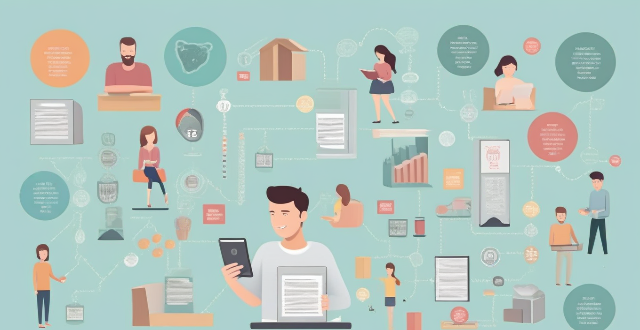The article discusses the various skills that young people need to develop in order to participate effectively in climate action. These skills include scientific literacy, critical thinking, communication, collaboration, advocacy, practical skills, financial literacy, emotional intelligence, and digital literacy. The article emphasizes that having a blend of these skills will enable young people to contribute meaningfully to efforts aimed at mitigating the effects of climate change.

Skills for Young People to Participate in Climate Action
To effectively participate in climate action, young people need a variety of skills that will enable them to understand the complexities of climate change and contribute meaningfully to efforts aimed at mitigating its effects. These skills span across multiple domains, including scientific literacy, critical thinking, communication, collaboration, and advocacy. Below is a detailed list of essential skills:
Scientific Literacy
- Understanding Basic Climate Science: Knowing how the Earth's systems interact and understanding the fundamental concepts of climate science is crucial for making informed decisions.
- Data Analysis: Being able to interpret data related to climate patterns, temperature changes, and environmental impacts is key to assessing the severity of the situation.
Critical Thinking
- Problem Solving: The ability to identify problems within the climate crisis and think creatively about potential solutions is vital.
- Decision Making: Making sound decisions based on available evidence and predicting the potential outcomes of those decisions is essential.
Communication Skills
- Clear Articulation: Being able to articulate complex climate issues in a clear and concise manner helps in educating others and promoting understanding.
- Storytelling: Telling compelling stories about the impacts of climate change can engage audiences and inspire action.
Collaboration
- Teamwork: Working collaboratively with others who are also committed to climate action amplifies individual efforts.
- Cross-Cultural Understanding: Given the global nature of climate change, understanding different cultures and perspectives is important for international cooperation.
Advocacy and Leadership
- Policy Awareness: Understanding how policies are made and how they influence climate change is crucial for effective advocacy.
- Activism: The willingness to take part in demonstrations, campaigns, or other forms of activism to bring attention to climate issues is a powerful skill.
Practical Skills
- Sustainable Living Practices: Knowledge of how to live more sustainably in daily life can serve as an example to others.
- Technology Use: Proficiency in using technology for tasks such as renewable energy installation, environmental monitoring, or digital campaigning is increasingly valuable.
Financial Literacy
- Fundraising: Ability to raise funds for climate-related initiatives is important for supporting projects and research.
- Budgeting: Managing budgets effectively for climate action projects ensures resources are used efficiently.
Emotional Intelligence
- Empathy: Understanding and relating to the feelings of others, especially those most affected by climate change, fosters solidarity and collective action.
- Resilience: The ability to cope with setbacks and maintain commitment to climate goals over long periods is crucial.
Digital Literacy
- Social Media Proficiency: Using platforms like Twitter, Instagram, and Facebook to spread awareness and organize events can reach large audiences.
- Digital Security: As more activism moves online, understanding digital security is important to protect personal and organizational data.
In summary, young people who aim to participate effectively in climate action must develop a blend of scientific knowledge, critical thinking, communication skills, collaboration abilities, advocacy, practical skills, financial literacy, emotional intelligence, and digital literacy. By honing these skills, they can play a significant role in addressing one of the most pressing challenges of our time.